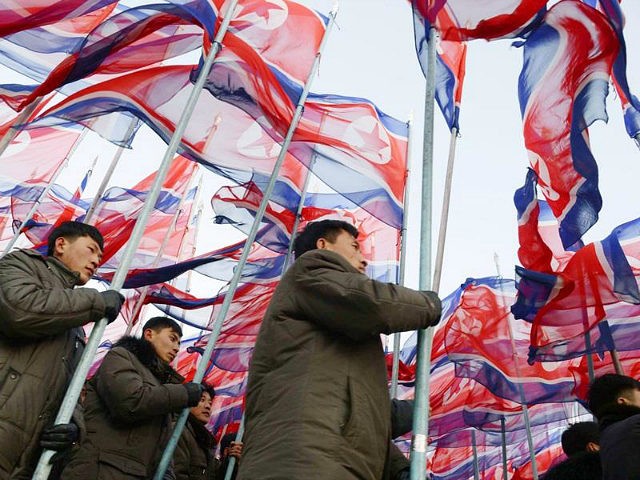“Washington Prepares to Bring North Koreans to U.S. for Talks,” blares the Reuters headline.
That is highly misleading as Reuters is quoting a Washington Post article from Sunday about a New York-based think tank seeking permission for North Korean representatives to visit the United States for informal discussions with former U.S. officials.
Some observers think the meeting will have some significance if it happens because it would be the first such visit by North Korean officials in five years, and it would require the implicit blessing of the Trump State Department.
As the Washington Post reported on Sunday, the State Department has not approved visas for the North Korean visitors yet. The host of the prospective conference, the National Committee on American Foreign Policy (NCAFP), dates back to the Carter administration and does not seem particularly well-connected to the Trump White House.
The North Koreans are described as vaguely interested in “engagement,” but analysts doubt the outcome of the meeting would be any moderation in their nuclear weapons program. So it is unclear how this meeting could result in anything better than the establishment of a tenuous back channel to the brutal regime in Pyongyang. Furthermore, the North Koreans were not interested enough in “engagement” to refrain from killing Kim Jong-un’s half-brother in Malaysia, if that assassination is confirmed to have been ordered by Pyongyang.
The bizarre assassination seems to have pushed China over the edge into imposing hard-hitting sanctions on North Korean coal. It has also alienated Malaysia, which recalled its ambassador from North Korea on Monday and has summoned the North Korean ambassador to explain the incident. North Korea, in turn, has taken to questioning the competence of the Malaysian police and suggesting some other sinister power carried out the assassination.
CCTV footage of Kim Jong-nam’s assassination had been obtained by global media, ensuring continued headaches for Pyongyang.
The best any of the inside sources quoted by the Washington Post can offer is the hope that it would be “a very positive sign from both sides” if the North Koreans wish to proceed with the New York meetings and the Trump State Department allows them to visit.
“The talks would be run independently of the State Department, where officials have privately questioned the utility of such discussions. But if the administration issued the visas, it would be an implicit seal of approval. And if the discussions go well, they could pave the way for official talks,” writes the Washington Post.
The Post’s analysis adds a little more kindling for the tiny flame of optimism, noting that North Korea’s public statements have been less bombastic and anti-American since Trump became president, and Trump has indicated a willingness to revise America’s North Korea policy, perhaps even bringing a little of his famed deal-making to the table. When North Korea conducted its latest provocative missile test in February, American media buzzed over how uncharacteristically “restrained” President Trump was in response.
Still, despite the efforts of NCAFP boosters to present their conference as a “Track 1.5” discussion — halfway between a “Track 1” official meeting and a “Track 2” confab in which neither side sends any senior public officials — it remains to be seen whether the Trump administration wants to do anything more than keep its options open with North Korea. From that perspective, it would seem to send a much stronger signal if the State Department refuses the North Korean visas than if it grants them.

COMMENTS
Please let us know if you're having issues with commenting.